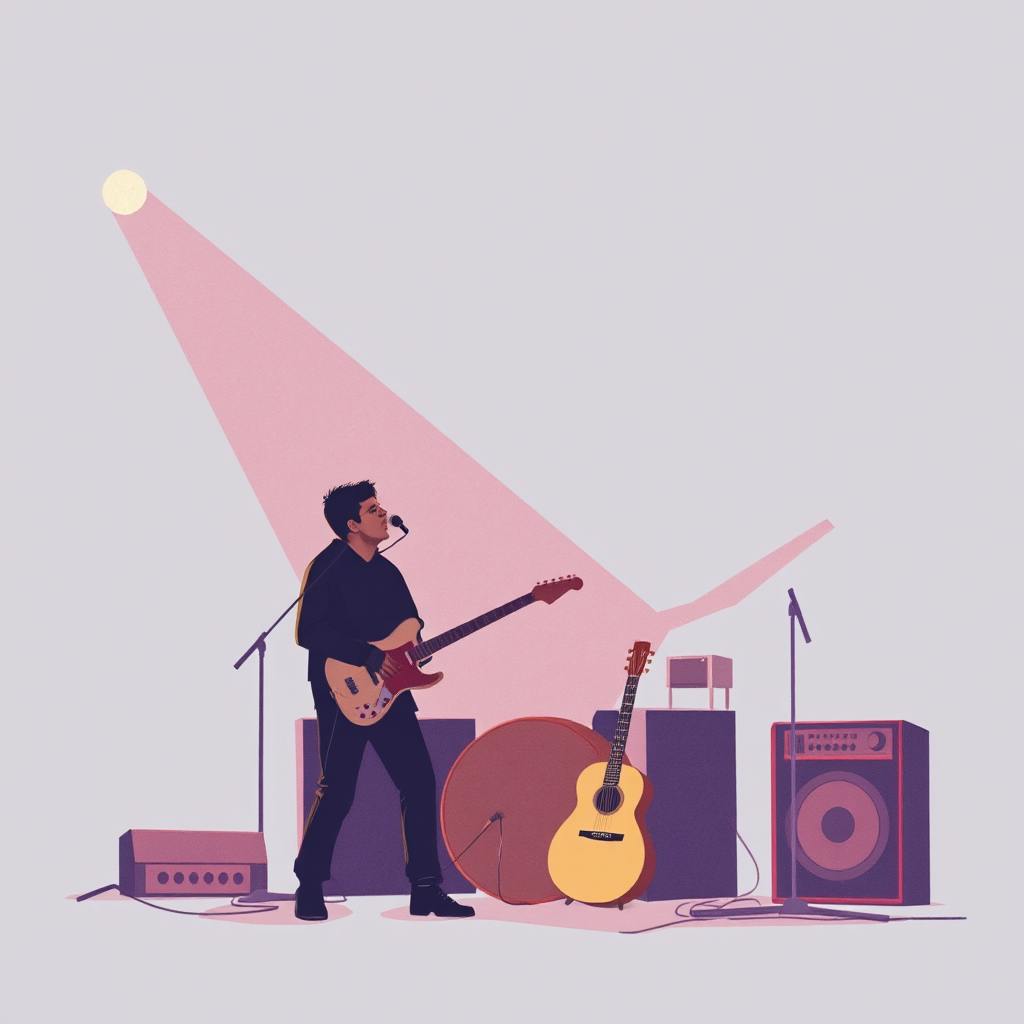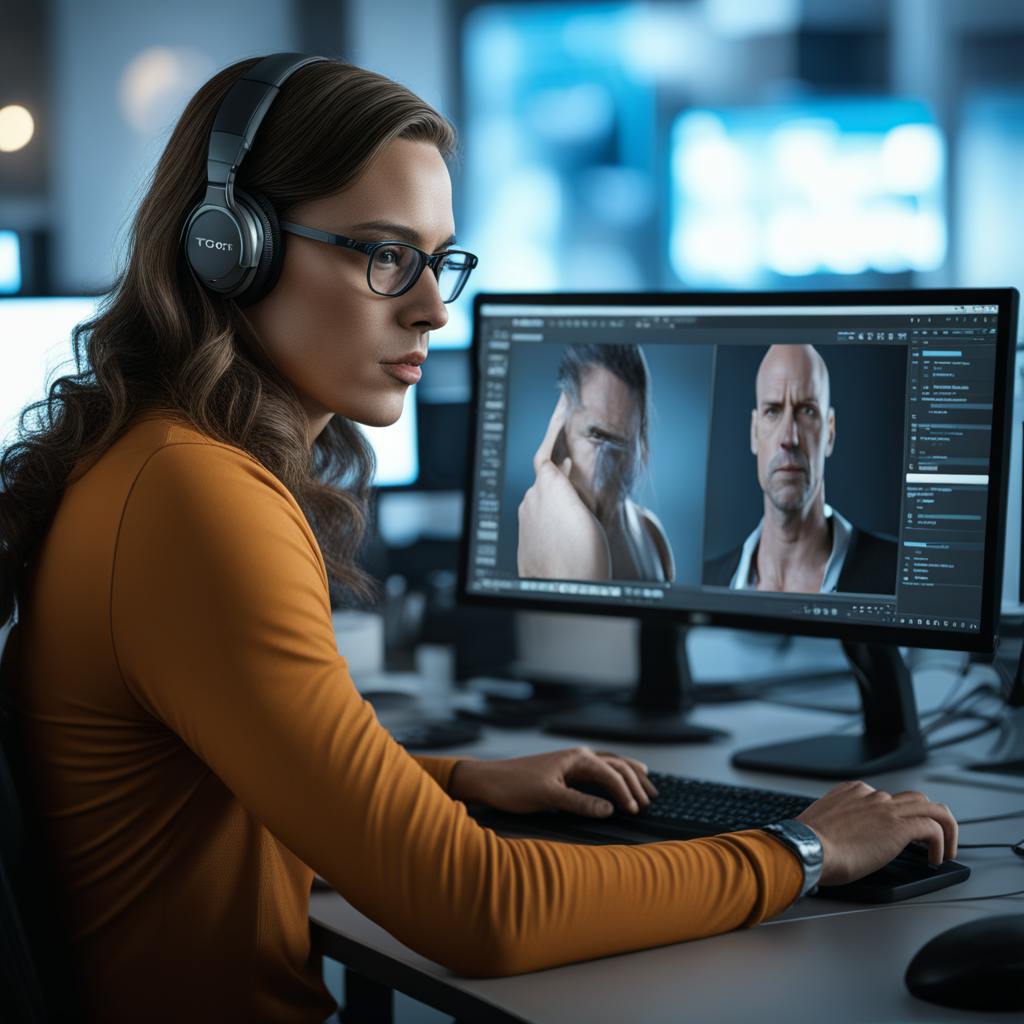The impact of AI on the music industry is nothing short of revolutionary. In an era where technology is constantly transforming various sectors, the music industry stands at the forefront of innovative disruption, driven largely by artificial intelligence (AI). Once, AI's role in music was a mere novelty; today, it is reshaping how music is composed, produced, distributed, and consumed. From enhancing creativity to streamlining production, the influence of AI is far-reaching and multifaceted.
Automation in Music Composition
AI's ability to compose music autonomously is perhaps its most striking application. With sophisticated algorithms, AI can create complex compositions that mimic the style of classical maestros like Beethoven or contemporary artists. This has opened new opportunities for content creators who now have access to personalized and royalty-free music for their projects. However, the question arises: Does AI-generated music compromise the authenticity of human creativity?
Enhancing Human Creativity
Rather than replacing human composers, AI serves as a collaborative tool that can enhance the creative process. By analyzing vast datasets, AI programs can suggest chord progressions, melodies, and harmonic arrangements that composers might not have considered. This synergy between AI and human creativity could lead to innovative genres and styles, further diversifying the music industry landscape.
Streamlining Production and Distribution
Beyond composition, AI streamlines music production and distribution. AI-driven software can efficiently handle technical aspects such as mixing and mastering, making high-quality production accessible to independent artists with limited budgets. Furthermore, AI algorithms in streaming platforms analyze listener preferences and recommend music, curating personalized experiences and ensuring that artists reach their target audiences more effectively.

AI made with Dean Jones
Challenges and Ethical Considerations
Despite its advantages, the implementation of AI in music raises ethical and logistical challenges. Intellectual property rights are at the heart of a growing debate: Who owns the rights to AI-generated music? Additionally, there's concern about the potential homogenization of music, as AI compositions could result in a formulaic approach to music-making.
Audience Engagement and Market Insights
AI's impact extends to understanding and engaging with music audiences. Analytical tools powered by machine learning help artists and producers glean insights into listener demographics, preferences, and engagement patterns. This data-driven approach enables more targeted marketing strategies and enhances audience interaction, leading to increased fan loyalty and potentially higher revenues.
Frequently Asked Questions
Can AI truly replicate the emotional depth of human-composed music?
While AI can simulate musical styles and genres, replicating the emotional nuances that human composers infuse into their work remains a challenge. AI-generated music often lacks the experiential authenticity shaped by lived experiences.
What about live performances? Can AI play a role there?
AI is already being utilized in live performances, assisting with real-time sound adjustments and visual effects. However, the human element of live music, particularly the spontaneous connection between performers and audiences, is something AI cannot fully replicate.
How might AI affect job opportunities in the music industry?
While AI can automate certain functions, new job roles are emerging, such as AI music curators and data analysts. The industry may see a shift rather than a reduction in employment opportunities.
FAQ: The Impact of AI on the Music Industry
How is artificial intelligence transforming the music industry?
Artificial intelligence (AI) is revolutionizing the music industry across various dimensions, ranging from the creative process to distribution, promotion, and consumption. Some key transformations include:
- Music Composition and Production: AI tools are being utilized to assist in composing music, generating melodies, and suggesting chord progressions. These tools can help artists explore new creative directions and produce music more efficiently.
- Personalization and Recommendations: AI algorithms play a crucial role in song recommendations by analyzing user preferences, listening habits, and contextual data to suggest music tailored to individual tastes, which is evident on platforms like Spotify and Apple Music.
- Music Distribution and Marketing: AI enhances data-driven decision-making in marketing strategies, optimizing advertising campaigns, and identifying emerging trends and audience demographics.
- Music Analysis and Metadata Tagging: AI systems help in analyzing music tracks for mood, tempo, genre, and other characteristics, which can improve metadata tagging and organization, making it easier for users to discover new music.
- Live Music Experiences: AI is being used to create immersive live music experiences, including virtual concerts and real-time audience interaction during performances.
What is the role of AI in the process of composing music?
AI serves several roles in music composition:
- Assistance in Melody and Harmony Creation: AI tools like OpenAI’s MuseNet or Google’s Magenta can generate melodies and harmonies based on user input or existing patterns, aiding composers with novel ideas.
- Style Emulation: AI can analyze and replicate the style of existing musicians, allowing composers to create music that pays homage to or expands upon their influences.
- Beat and Rhythm Pattern Generation: Specialized AI software can craft complex rhythmic patterns, providing a foundation for various musical genres.
- Co-Creation and Collaboration: AI facilitates collaboration between humans and machines, enabling composers to interactively edit and refine AI-generated compositions to fit their artistic vision.

AI made with Dean Jones
What are the revolutionary impacts of AI on the music industry?
AI’s revolutionary impacts on the music industry include:
- Democratization of Music Creation: AI-powered tools make music production more accessible to amateur musicians without formal training by simplifying complex tasks and offering creative assistance.
- Enhanced Creativity: AI expands creative possibilities by proposing novel sounds and structures, helping musicians to step beyond conventional boundaries.
- New Revenue Streams: AI-generated music can be used in diverse applications from video games to corporate settings, creating new opportunities for licensing and revenue generation.
- Dynamic Music Experiences: AI can contribute to creating music that adapts in real-time to listener activities or emotions, providing a more engaging and personalized listening experience.
- Improved Efficiency: AI streamlines processes such as mixing, mastering, and audio cleanup, reducing the time from creation to release.
How is AI changing the way we create and listen to music?
AI is reshaping both the creation and consumption of music in multiple ways:
Creation
- Experimentation with AI-generated Sounds: Musicians can use AI to explore previously unimagined soundscapes and audio effects, fostering innovation.
- Accelerated Music Production: By automating repetitive tasks, AI allows musicians to focus more on the creative aspects of composing and producing music.
- Enhanced Collaboration: AI tools encourage collaboration by allowing multiple musicians to work together seamlessly within digital environments, transcending geographical limitations.
Listening
- Increased Personalization: AI tailors music recommendations with high precision, offering listeners playlists that closely match their moods and preferences.
- Interactive Music Experiences: AI enables the development of interactive music applications where listeners can influence or alter soundtracks in real-time.
- Exploration and Discovery: With AI, listeners are more likely to discover new artists or genres that align with their tastes, broadening their musical horizons.
Overall, AI is playing a crucial role in both how music is created and consumed, driving innovation and creating new possibilities for artists and audiences alike.

